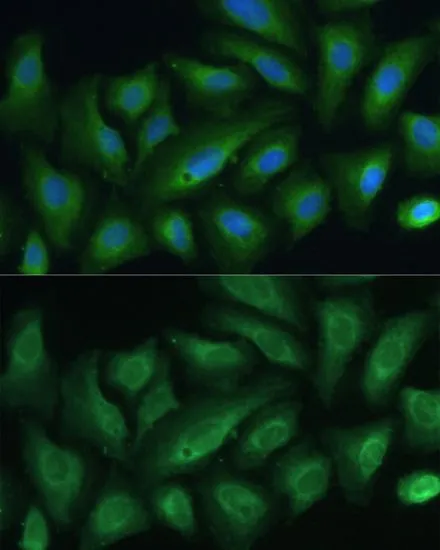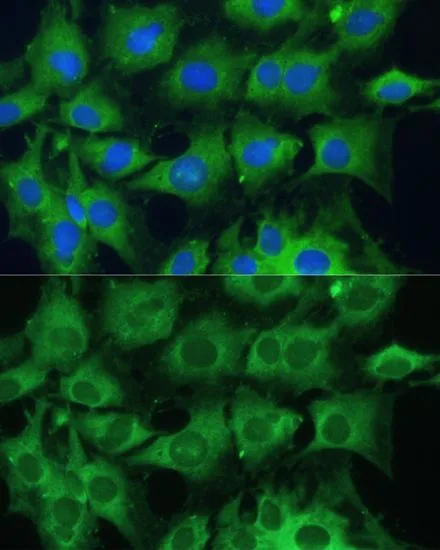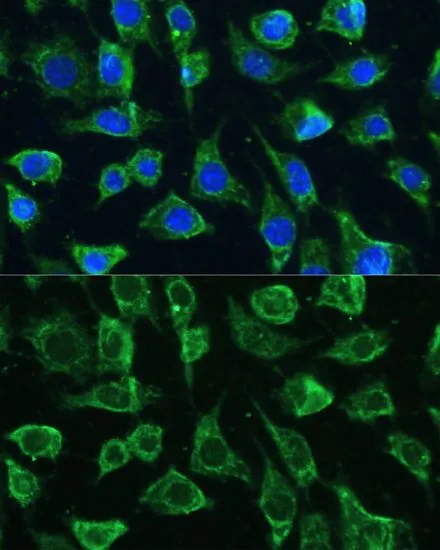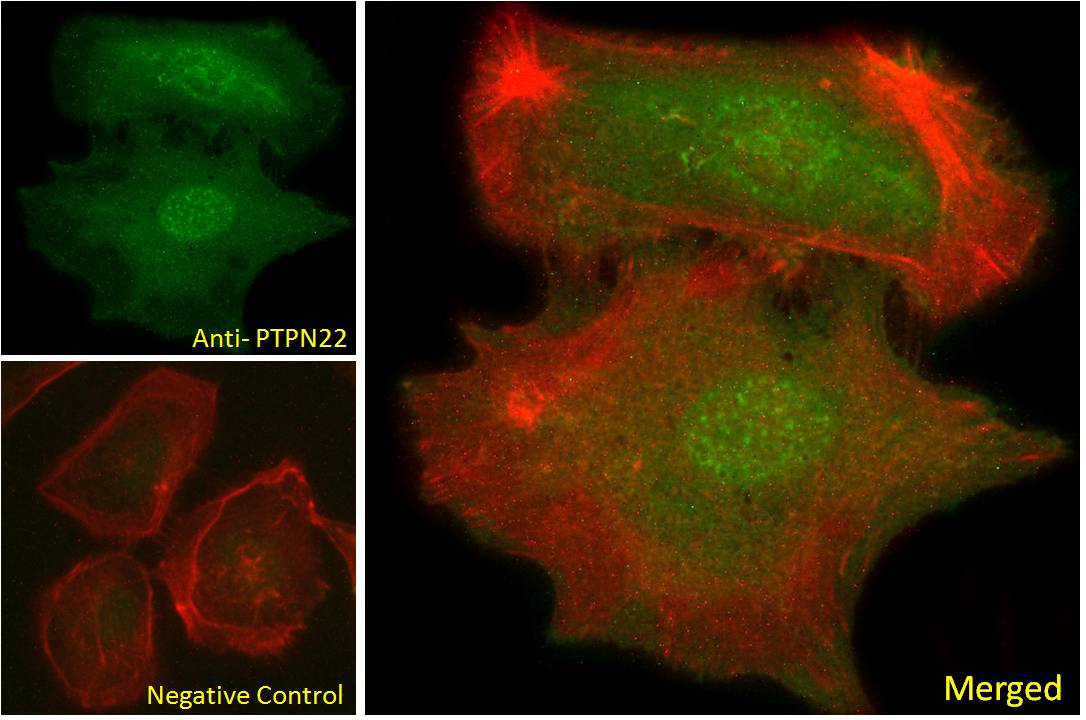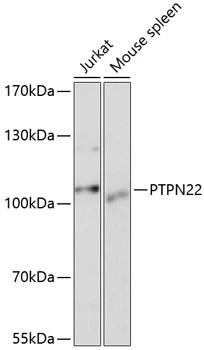
WB analysis of various sample lysates using GTX66229 PTPN22 antibody. Dilution : 1:1000 Loading : 25μg per lane
PTPN22 antibody
GTX66229
ApplicationsImmunoFluorescence, Western Blot, ImmunoCytoChemistry
Product group Antibodies
ReactivityHuman, Mouse, Rat
TargetPTPN22
Overview
- SupplierGeneTex
- Product NamePTPN22 antibody
- Delivery Days Customer9
- Application Supplier NoteWB: 1:500 - 1:2000. ICC/IF: 1:50 - 1:200. *Optimal dilutions/concentrations should be determined by the researcher.Not tested in other applications.
- ApplicationsImmunoFluorescence, Western Blot, ImmunoCytoChemistry
- CertificationResearch Use Only
- ClonalityPolyclonal
- ConjugateUnconjugated
- Gene ID26191
- Target namePTPN22
- Target descriptionprotein tyrosine phosphatase non-receptor type 22
- Target synonymsLYP, LYP1, LYP2, PEP, PTPN22.5, PTPN22.6, PTPN8, tyrosine-protein phosphatase non-receptor type 22, PEST-domain phosphatase, hematopoietic cell protein-tyrosine phosphatase 70Z-PEP, lymphoid-specific protein tyrosine phosphatase, protein tyrosine phosphatase, non-receptor type 22 (lymphoid), protein tyrosine phosphatase, non-receptor type 8
- HostRabbit
- IsotypeIgG
- Protein IDQ9Y2R2
- Protein NameTyrosine-protein phosphatase non-receptor type 22
- Scientific DescriptionThis gene encodes of member of the non-receptor class 4 subfamily of the protein-tyrosine phosphatase family. The encoded protein is a lymphoid-specific intracellular phosphatase that associates with the molecular adapter protein CBL and may be involved in regulating CBL function in the T-cell receptor signaling pathway. Mutations in this gene may be associated with a range of autoimmune disorders including Type 1 Diabetes, rheumatoid arthritis, systemic lupus erythematosus and Graves disease. Alternatively spliced transcript variants encoding distinct isoforms have been described. [provided by RefSeq, Mar 2009]
- ReactivityHuman, Mouse, Rat
- Storage Instruction-20°C or -80°C,2°C to 8°C
- UNSPSC41116161

